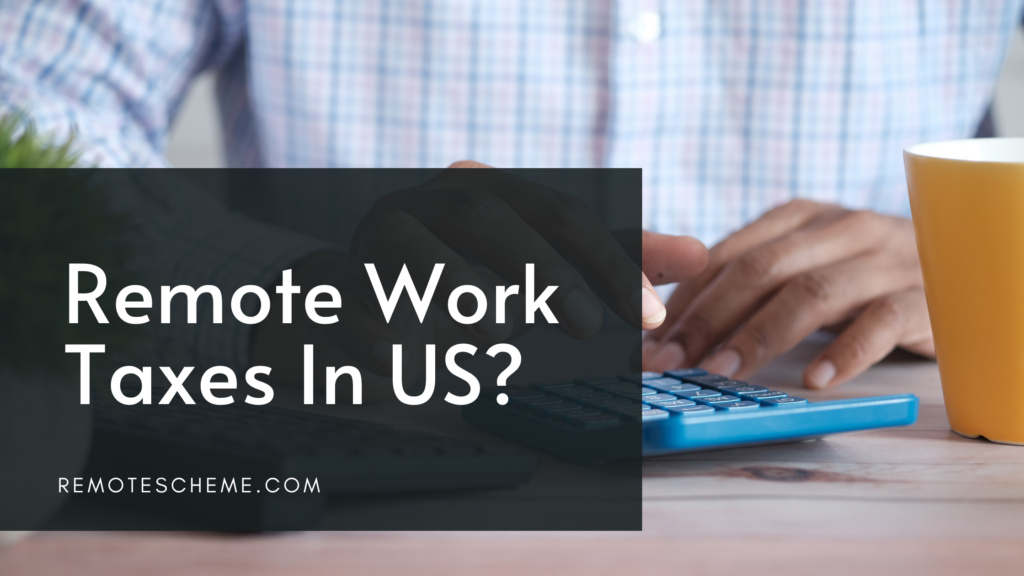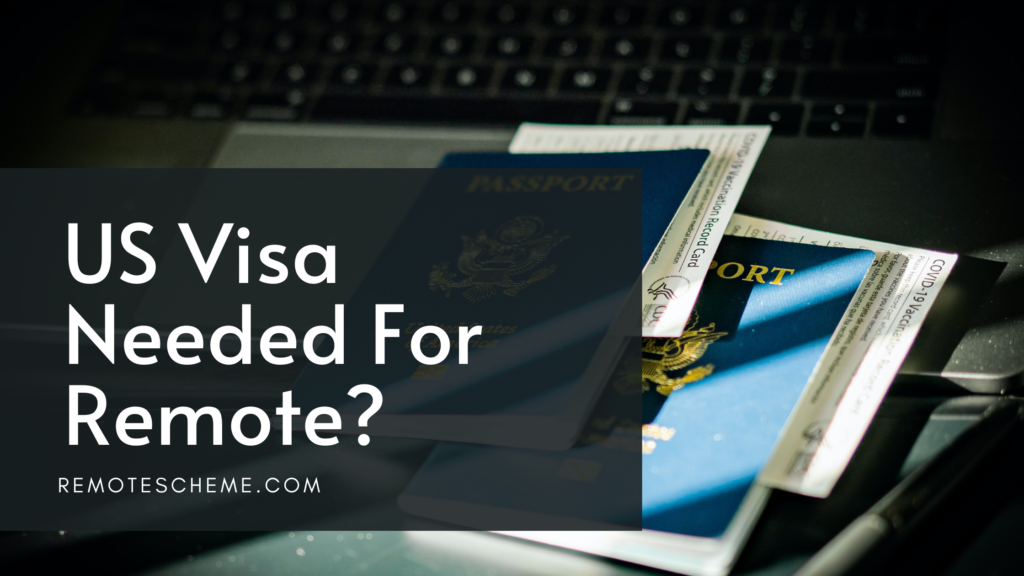During COVID-19, more than 70% of full-time workers shifted to working from home. Since then, remote work has become extremely popular for employees and business owners.
That’s because, for employees, remote work provides room for flexibility, work-life balance, and higher productivity. At the same time, most companies now prefer remote hiring to reduce costs and staff turnover and explore a wider talent pool.
Speaking of work opportunities, a lot of people are looking for opportunities to work remotely for US-based companies.
Can A Foreigner Work Remotely In The United States?
The simple answer is yes. A foreigner can work remotely in the United States. However, there are some rules you should follow before doing so.
In this article, we’ll give you an insider’s guide to working remotely in the United States.
Can I Work Remotely For A US Company As A Foreigner?
It’s possible to work for a US company as a foreigner. However, there are some challenges that you and your employer will face.
If you’re not a US citizen planning to work remotely for a US-based employer, there are some things you need to consider.
First, you should know that you can work as an employee, freelancer, or independent contractor. What’s the difference?
As an employee, you’re on the company’s payroll, earning a monthly wage. As a freelancer, you submit an invoice to the client’s company for your working hours to get paid.
Meanwhile, as an independent contractor, you set your working hours to suit your time zone. You also have more flexibility to manage your schedule and time to fit your preference.
Moreover, working as an independent contractor, you’re responsible for your own tax payments, and you’re not qualified for employee benefits.
In most cases, US companies prefer hiring independent contractors. That’s because they save money by avoiding immigration and compulsory payments.
What Are The Tax And Legal Implications Of Working Remotely For A US Company?
You might wonder if you will pay taxes when working remotely for a US company. Generally speaking, all non-US citizens working for US-based companies are obliged to pay taxes in their country of residence.
However, paying taxes depends on whether you’re an employee working remotely or an independent contractor.
Employees
If a US-based company hires you as an employee to work remotely, they’re responsible for tax contributions on your behalf, which means you have little or no tax obligations.
Independent Contractors
Independent contractors are self-employed, which means they’re responsible for paying their taxes in their country of residence. This might be tricky, though, as most digital nomads travel frequently.
As a result, if you’re an independent contractor, you might be obliged to multiple tax returns if you’re a resident of multiple countries.
What Is Form W-8BEN And When Should I Fill It Out?
According to the IRS, non-resident foreigners earning money from a US source should fill out Form W-8BEN.
The form ensures that NRAs (Non-Resident Aliens) are exempt from paying taxes to the US government.
Do I Need A Visa To Work For A US Company Remotely?
Foreigners working for a US-based company don’t need a visa or work permit as long as they’re not on American soil. However, if the company decides to bring an employee to the United States, a visa is required.
Every country has specific visa requirements and permissions. The length of stay, restrictions and tax obligation are all factors to consider. If you want to work remotely in the United States, here are some visa options.
Tourist Visa
Tourist visas are optimal for short stays. For example, if your company invites you to an internship or training program for a few months, a tourist visa would make sense.
A tourist visa will allow you, as a non-resident, to stay in the country for 90 to 180 days (depending on the country). This visa is also popular for digital nomads who travel to different countries every few months.
The B-1 Visa
Unlike many other countries, there’s no one special visa for digital nomads in the United States. However, the B-1 visa seems a good option for foreigners who want to temporarily stay and work in the US.
Even though you’re not allowed to work in the USA with a B-1 visa, it’s not the case if you’re a digital nomad. As long as you’re not an employee, you can work remotely or visit a co-working space.
How Does A Foreign Remote Worker Of A US Company Get Paid?
One question that comes to mind when looking for a remote job is, how will I get paid?
First, make sure to negotiate with your employer and clearly understand how much you’re going to earn. That’s because online payments entail expenses, taxes, and commissions.
What’s more, you’re most likely going to get paid in a foreign currency. That means you might need to exchange it for your local currency. And depending on the currency fluctuations and exchange rates, your salary might be less or more than expected.
Digital nomads usually don’t have access to a single bank account, as they’re always traveling around. That’s why they often avoid getting paid via direct bank transfers and opt for other flexible payment methods like PayPal, Wise, Payoneer, etc.
These allow the user to receive money from others and choose to transfer to their bank account or not.
The downside of using online payment platforms is that they apply different rates and charge you for receiving money, transferring money to your bank account, and currency conversion.
It’s also worth noting that these payment methods aren’t available in all countries.
Final Thoughts
So, can a foreigner work remotely in the United States?
Yes, it’s possible, but first, you need to decide whether you want to work as an employee, freelancer, or independent contractor.
As an independent contractor or freelancer, you won’t pay taxes to the US government, and you won’t be eligible for employee benefits like health insurance and retirement plans. However, you get more freedom and flexibility during your job.
As an employee, the company dictates your working schedule. They’re also responsible for handling tax issues on your behalf.
If you’re not a US resident or don’t have a green card, and you want to work remotely, then working as an independent contractor or freelancer might be your best option.




